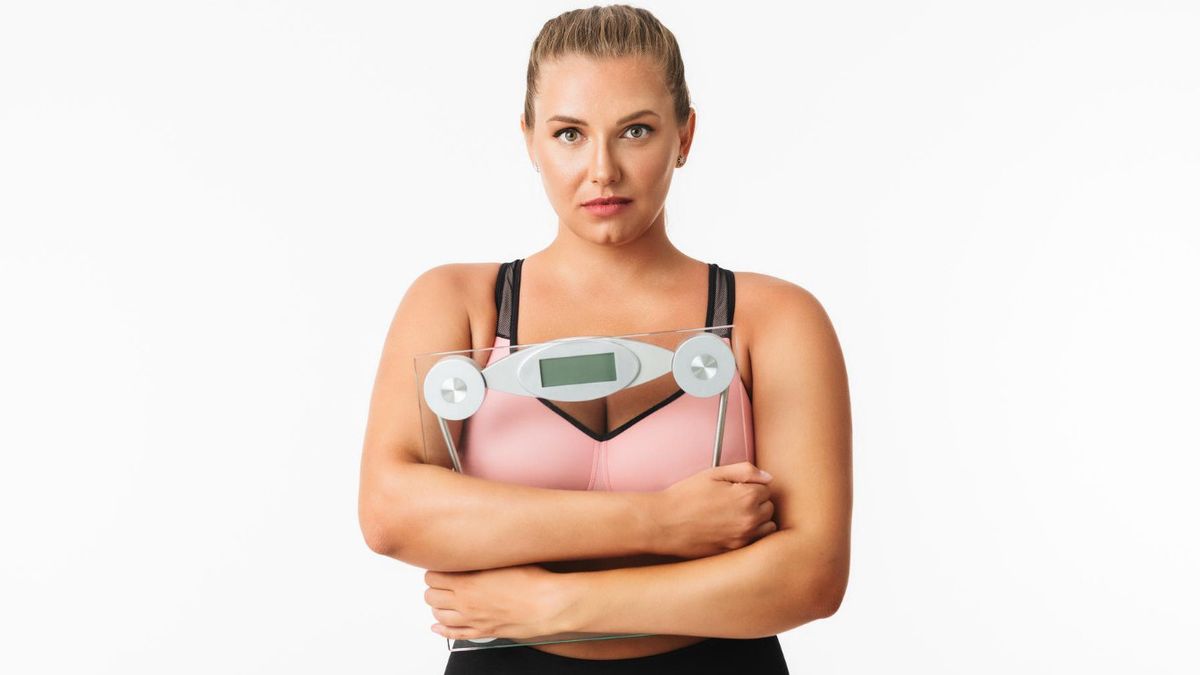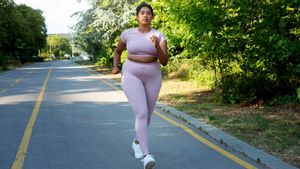YOGYAKARTA "Heaving weight even though it's routine exercise makes you wonder. It's not that the number of scales is shrinking, but it's even more than a few kilograms. If you've experienced it, it's important to evaluate your health first. However, based on expert explanations and research results, maybe weight rises after exercise is only temporary. Next, identify the following reasons for evaluating your health and types of training.
Weight goes up when new sports are experienced. This depends on how much muscle exercise is done and diet. But in principle, any increase in physical activity will likely result in several increases in muscle strength and mass.
In addition to a high diet of protein and strength training, genetic congenitals also affect the increase in muscle mass when starting out as a sporting program. In fact, even if you lose fat during exercise, the figure scale shows an increase. This is because muscles are denser than fat, but require little space. That is, the waist circumference may shrink and the muscles are stronger even though the weight of the body goes up.
Water retention is a common cause of temporary weight gain. Pramenopause people are very vulnerable to these conditions, especially due to hormonal changes. If you are menstruating, it is likely to gain weight due to bloating before or during menstruation. But it is important to understand, exercise can reduce prememnstruation symptoms. According to research reported by VerywellHealth, Sunday, August 20, fluid retention peaked on the first day of menstruation and was low during the mid-follicle period, then it would gradually increase for 11 days around ovulation.
To what extent is the increase in weight, it may vary in each person. But a little weight gain after exercise, that's normal. Apart from the increase in water weight, it could also be due to increased sodium intake. So, consuming high-salt foods causes an increase in weight.
Your exercise may cause weight gain, but this increase shows that you exercise hard enough to damage muscle tissue and cause inflammation. The repair process after training allows muscles to grow and become stronger. Physiologists mention the exercise-induced muscle damage (EIMD) or muscle damage caused by exercise. This is a temporary phenomenon when you just start the training program.
Exercise causes structural damage to myofibers or cells in muscle tissue from inflammation due to the buildup of white blood cells in damaged tissues. Inflammation and buildup of this fluid may appear as a temporary gain in weight after exercise. Usually, if you feel muscle aches, it could be due to inflammation and improvements that occur in the body. Well, if the effect is weight rising even though you are already exercising, it could be because of this.
Post-export nutrition or use of supplements can also cause weight gain at a certain level after exercise. Especially when undergoing a prolonged endurance sports program such as running or cycling that consumes body glycogen.
It is very common for athletes to be trained to take post-train supplements that contain carbohydrates. Carbohydrates help restore muscle glycogen and each gram stores three grams of water. Another supplement that can cause post-training weight gain is creatine. This supplement is used by many people who are diligent in exercising to increase muscle mass or fluid retention.
After training, maybe you feel hungry and refuel with a healthy fiber-rich food. The nutritious food consumed causes weight gain while working throughout the body.
Fiber foods help with the retention of water in the large intestines and produce less dryness and are easier to remove. While the fiber is not soluble, it can increase the weight. Before defecating, you may see an increase in weight after exercise, but fiber also reduces the colon transit time. So this is not a nutrient that you should avoid. So identify the weight differences before and after defecation.
اقرأ أيضا:
Through the explanation above, you don't need to worry if your weight goes up even though you regularly exercise. As long as you keep your diet under control and don't get injured during exercise, then there's nothing to worry about.
The English, Chinese, Japanese, Arabic, and French versions are automatically generated by the AI. So there may still be inaccuracies in translating, please always see Indonesian as our main language. (system supported by DigitalSiber.id)


















